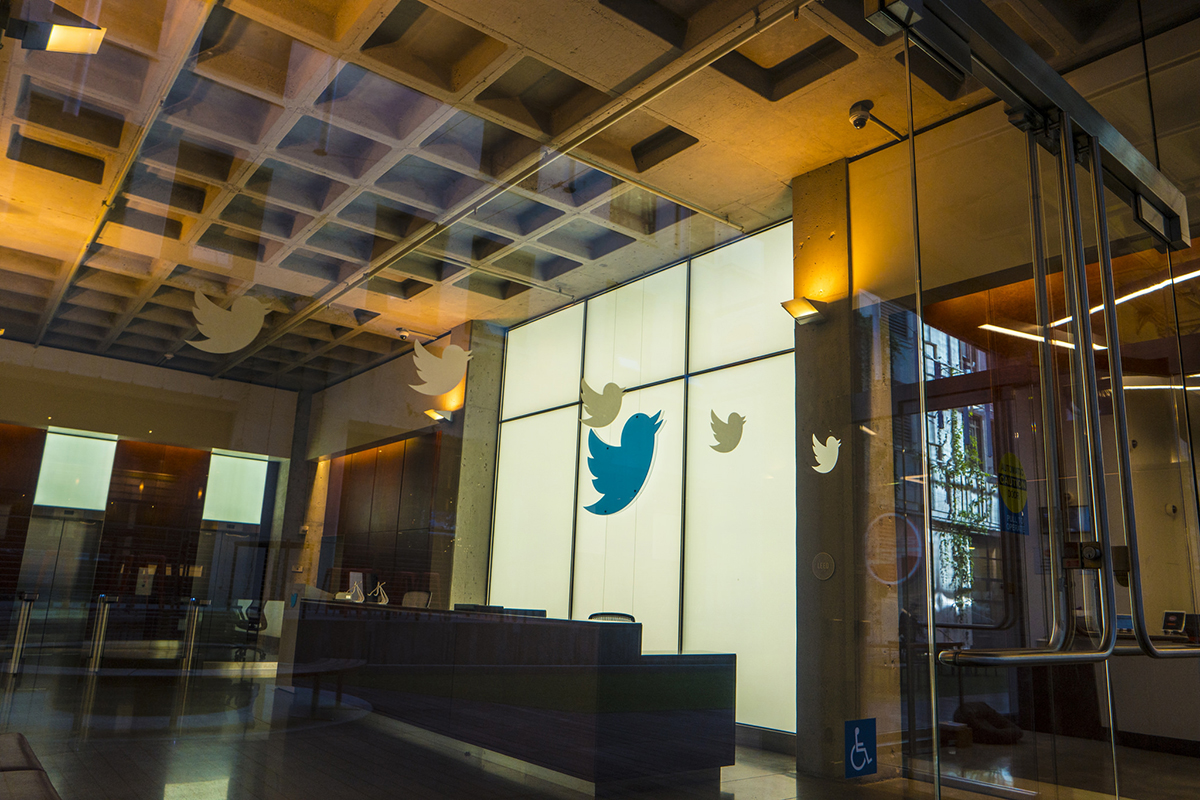Activism
Who Is the Real Threat to Autonomy and Flourishing Online?
It is misleading to characterize the web as a quasi-democracy.

Is the web out to get us, or is it a force for autonomy and flourishing? Is it another instrument for the governing elite to channel the masses for political or business purposes? Is it a means for our baser nature to entrench everlasting fake news stories, political narratives, and even whole ideologies?
In her 2019 book The Age of Surveillance Capitalism, Shoshana Zuboff details what she regards as the dangers of losing our freedom, dignity, and democratic control to business by being “conditioned,” “tuned,” “nudged,” and otherwise shaped in unconscious ways to serve Big Tech and its business associates. Echoing many of her fears, the popular Netflix documentary The Social Dilemma portrays algorithmic tracking of our behaviour by Facebook and Google as a Frankenstein’s monster. The documentary has the endorsement of the historian Yuval Noah Harari, best known for his Sapiens: A Brief History of Humankind. He argues that the web has become a tool to further reinforce the survival of fake news, to which he thinks humans already have a strong proclivity. Who is going to tame it?
Apparently, the self-styled visionary Tristan Harris and his organisation, the Center for Humane Technology (CHT), will ensure that governments and supranational bodies such as the European Union can properly regulate our digital future. In a striking dirigiste proclamation, the CHT says it is dedicated to radically reimagining our digital infrastructure: “Our mission is to drive a comprehensive shift toward humane technology that supports our well-being, democracy, and shared information environment.” In an article in the Financial Times, Harris adds: “For example, the EU wants a Green Deal—but how can it achieve that if a majority of YouTube climate change videos oppose the scientific consensus, as one 2019 study showed?”
My answer to the CHT is that the web is still a resource for the blooming of individuals through collaboration and expression, but only if we have free entry into the digital market. The global networking that the web unleashed still enables a sole voice to make a big difference. Whereas only several decades ago it would have cost you hundreds of thousands of pounds a month, and even today at least £50,000 per month, just to cover England and Wales by the old technology of radio, today you can transmit your hi-definition video podcast from your smartphone to the world for £50 per month. We are also misdirected by the idea that the web is a sort of democracy.

Democracy versus free entry
It is misleading to characterize the web as a quasi-democracy. At its best, political democracy is associated with free speech and assembly and, as Karl Popper rightly emphasised, it ought to be a means of removing bad rulers and bad rules. But the core of democracy—its ultimate authority—is the rule of the majority. Now, the really desirable potential of the web is the exact opposite of majoritarian rule: the non-rule of any section of the public, minority or majority.
Its genuine promise lies in the free entry of any expression that can be represented or hosted in the cybersphere: a belief, an argument, a debate, a proposal, a news-report, a work of visual art, music, a poem, or an ongoing cooperation of some kind. More than that, the web stands for a transformative and sometimes disruptive networked-social life, bringing about inventive ways of connecting and sharing. For example, Shawn Fanning invented Napster, and Wael Ghonim galvanized pro-democracy demonstrations in Egypt in 2011. The web still stands in contrast to the more traditional and rigid hierarchical centres, modes, and procedures of the old-guard, whose authority is in sharp decline. Free entry and the outsized impact of newly empowered activists like Ghonim are the opposite of majority rule.
Know thyself—at least better than an algorithm or a parrot
We are told by Harari that an ominous significance of the bias-tracking algorithms of Facebook and Google is that the algorithms know you more than you know yourself.
Like a well-trained parrot, the Facebook algorithm “notices” patterns of your viewing and buying habits and spits out programmed responses. Often the timing and accuracy of a parrot’s responses can catch you off guard, almost like the parrot knows what you are up to and why—and there is a benefit to this. Healthy debate relies on a division of labour in which I identify your errors if you identify mine. In ordinary conversation, there is often mutual “ribbing,” in which our silly ideas or behaviour—sporting rainbow-dyed “Mohican” haircuts, overzealous diets, wearing medical masks on walks in the countryside—may be ridiculed and mocked to everyone’s entertainment and sometimes enhanced self-awareness. Perspicuous algorithms are only ominous if we have not freely and deliberately outsourced to them the tracking of our behaviour.
The producers of The Social Dilemma prescribe a number of voluntary, person-centred strategies for dealing with the baneful influence of social media. However, the problem of “fake news” and the insidious influence of Google and Facebook is ultimately presented as a problem for the state to fix.
Does fake news last forever?
But are the tech giants going to distort our perception of the truth and install their ideological narrative and fake worldviews? Yuval Noah Harari seems to think so, or at least that possibility is implied by his view of people. Lesson number 17 of his book, 21 Lessons For The 21st Century, is entitled “Post-Truth: Some Fake News Lasts Forever”:
Homo sapiens is a post-truth species, whose power depends on creating and believing fictions. Ever since the Stone Age, self-reinforcing myths have served to unite human collectives. Indeed, Homo sapiens conquered this planet thanks above all to the unique human ability to create and spread fictions…
The truth is that truth was never high on the agenda of Homo sapiens. Many people assume that if a particular religion or ideology misrepresents reality, its adherents are bound to discover it sooner or later, because they will not be able to compete with more clear-sighted rivals. Well, that’s just another comforting myth.
It’s not a giant leap from this view to framing the web as a stimulant and reinforcer of fake news. This view begins to crumble if we look at the evolution of ideas over longer periods. When we do this, we learn that the life and death of ideas and their movements are surprisingly fluid. Having seen the fluidity of large-scale ideologies in the long-run, we can then read back these insights to the shorter-term flow of social media influence and fake news.
The turnover of adherents to ideologies and fake news
When we look at ideological movements, we see many people spreading certain ideas, perhaps zealously and dogmatically protesting in the streets with flags, banners, and sometimes violence. Some movements, peopled by thousands or millions, look like unstoppable, rock-solid juggernauts. But these intellectual “things” are in fact more fluid. If we look closely, we will notice a turnover of membership and, if we cast our gaze over a longer period of time, we witness within these “juggernauts” splits and other dramatic internal disagreements. For example, when we examine the Communist Parties in the West during the 1930s, we’re at first impressed by what looks like formidable discipline, strength, and staying power. But all the time, some Communist Party members were leaving and new people were joining. Typically, in such ideological bodies of adherents, there are a few stalwarts who remain at the helm through thick and thin, while the great body of members are continually being replaced.
A similar phenomenon affects religious movements. In her 1989 book New Religious Movements: A Practical Introduction, the sociologist Eileen Barker reported that at least 61 percent of those who joined the Unification Church during a four-month period in 1978 had left within two-and-a-half years. Others have found very similar defection rates in various minor religious sects.
Of course, this ignores the interesting question of whether the defectors have given up all the beliefs in the doctrines of the movement they have quit. However, most have probably rejected at least some of the ideas, and examples of comprehensive rejection are certainly not hard to find. Exactly the same logic applies to fake news or any ideological deception that Big Tech is trying to install in its users.
Bertrand Russell Island, bogus doctrines, and fake news
If humans are rational, then ideologies which fail rational standards will tend to lose support. But even if all humans were very intelligent, sharply critical beings, in addition to being merely rational, there are limits on how quickly they could eliminate error. It’s theoretically possible, therefore, for everyone to be rational and yet for irrational ideologies to persist for centuries or longer, because large movements may have a high turnover rate. If a movement gains new members at least as fast as it loses them to critical argument, the movement’s doctrine may persist for thousands of years even though no single member was ever convinced for more than a year (or, more realistically, if only a comparative handful are enduringly convinced).
The Church of Scientology is one of many ideologies cited in support of the theory that humans can become closed to argument, having fallen victim to false, futile, uneconomic, or inconsistent ideologies. However, one study found that 100 percent of new converts quit the Church within five years. Tarot, astrology, 9/11 Trutherism, UFO-ology, Flat-Earth, and QAnon may be systems of ideas that people adopt for a while, partly out of playfulness and curiosity, partly out of conviction, only to abandon them several years later. (Here you can substitute your own favorite examples of supposedly “irrational” ideas.)
Even if people were to choose infallibly between correct and erroneous doctrines given several years to decide, we would still expect to see a great number of erroneous doctrines being perpetuated. Let’s push this thought experiment further. Imagine a large population of Bertrand Russells—a Bertrand Russell Island—each of whom will inspect every doctrine placed before them, and will infallibly consign each doctrine to its proper place: the error bin or the correct bin. However, in each case, it takes a week to decide. Even on this ideally rational island, all new bad ideas would propagate for a week or more. Bertrand Russell Island is like any normal population with birth and death. Because there’s always youthful Bertrand Russells who have yet to inspect the bad ideas, bogus ideas could, in principle, last forever. There would still be a disconnect between the system of ideas spreading and the rationality/cognitive power of the individuals in the population. You don’t have to think that some people are irrational or closed to argument to explain the prevalence of error or stupid ideas. Even Bertrand Russell Island would have fake news.
My position, expounded in my book The Myth of the Closed Mind, on how people engage with ideas, whether they be faulty ideologies or fake news, is that people are rational. One important way in which they are rational is that they can correct their errors and make continual progress. However, the reader may suspect that I have conceded much of my case, for if wrong-headed ideologies can gain ground over a long period, then the population as a whole might be described as effectively irrational. I would respond by pointing to major examples of the propagational advantage of truth, signs that people often believe propositions because they are true.
Ask yourself—is it entirely accidental that, in contrast to a few hundred years ago, most people today believe that malaria is caused by mosquito bites? Now, is this fact about people’s beliefs in any way connected with the fact that it is correct that malaria is caused by mosquito bites? It’s easy to multiply the examples of true and useful ideas that have stood the test of time precisely because people recognize them as not just useful, but true. Gasoline makes cars go, and antibiotics kill pathogens even if people don’t believe it. Science is clearly a long-lasting and dominant influence in the West, and even now it is spreading further throughout the world, casting anti-scientific aspects of culture aside, or at least snaking past them and making them irrelevant. Are we to believe that this has nothing to do with the fact that scientists, and much of the public that supports them, believe science is valid because it is valid?

The success of science and its theories is clearly something that Harari has to take on. Otherwise, it’s just random luck that science has been adopted and has triumphed on the stage of history. My thesis is not that truth inevitably succeeds, but rather that it has a propensity to succeed in competition with falsity. It’s easy to multiply the examples of true and useful ideas that have stood the test of time.
Conclusion
One systemic suppressive influence on the corrective processes in the growth of knowledge, and hence the survival advantage of truth, is the meddling of the state, aided and abetted by the well-meaning but patronising people who gave us The Social Dilemma. A major unexamined axiom of the Center for Humane Technology is that for society-wide problems, the democratic state is always or probably the best problem-solver.
However, there are unintended systematic consequences of using the state to keep corporations in check, rather than leaving it to free entry and competition. As the founders of public choice economics, Gordon Tullock and James Buchanan, taught us, government has its own economy. For example, in order to understand how people in a government bureaucracy behave, you need to know the set of incentives and disincentives each government agent faces. Government is not just a perfectly obedient mechanism that implements policies in a clockwork manner, it is subject to the economics of human choice. CHT has overlooked the economics of the beast.
With a small “night-watchmen” state, it might be feasible for the ordinary citizen to inspect the government’s business. However, the costs to any citizen of monitoring the thousands of programs emerging from the myriad ministries of our bloated governments is extremely high compared to the minuscule benefit or cost imposed on him by any one of those policies. Introducing state-licensing for a trade, for example, has typically meant that the established corporations with their accumulated capital, political connections, and specialism in their field get to “assist the state” in writing the rules that govern their niche. With all these forces mounted against the citizen, it’s not surprising that we then get stuck with politically stronger versions of the overbearing corporations which our “radically reimagined” and “comprehensive” policies were meant to curb.
There is a better way. Free entry to support the competition of ideas and the invention of new types of communicative platforms such as Clubhouse, Parler, and Signal is the way forward. Free entry is an escape from old-style crony capitalist democracy that lends itself to corruption and the closing off of new entrepreneurial start-ups by the established tech giants. The CHT has fallen for the old fallacy: If you are confronted by a leviathan, just invoke a larger leviathan.
Paradoxically, in Harris’s well-meaning attempt to disrupt Big Tech’s channelling of the masses, he may unintentionally crush the autonomy he is trying to save by his own state-backed “comprehensive” planning of our digital future. I think we can re-imagine our future ourselves, thank you. Why should we believe that a group of 20 or so bright people at CHT can out-invent and out-imagine the thousands of as yet unknown entrepreneurs and inventors in our digital future? As we will know them only in the future, at this moment they are only possible people who will enrich the world with their solutions for greater autonomy and flourishing. How sad if CHT were to keep them merely possible people. Perhaps CHT aren’t the tech visionaries we first thought they were: they are the old-school reactionaries in youthful garb.






